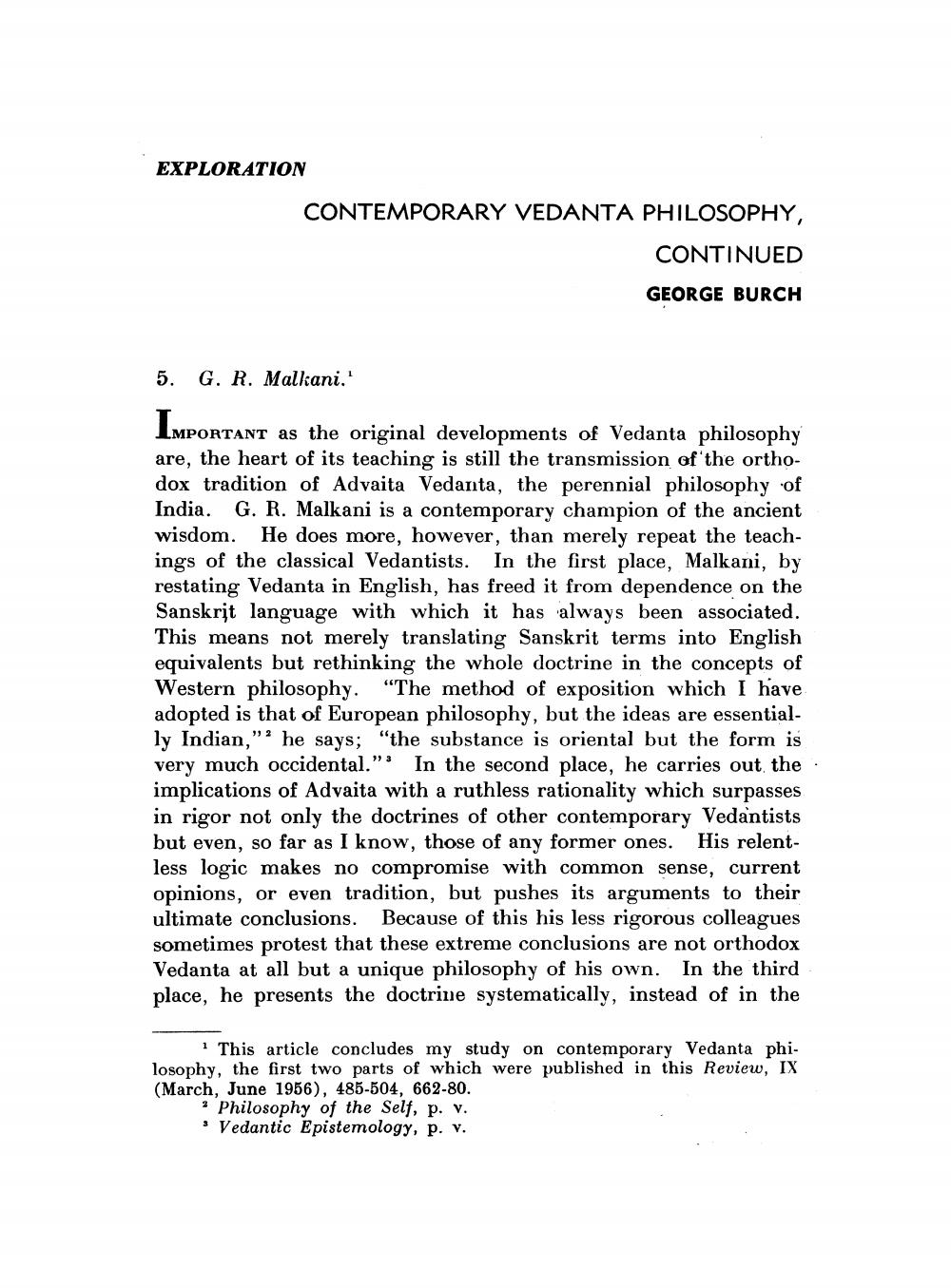Book Title: Contemporary Vedanta Philosophy Continued Author(s): George Burch Publisher: George Burch View full book textPage 1
________________ EXPLORATION CONTEMPORARY VEDANTA PHILOSOPHY, CONTINUED GEORGE BURCH 5. G. R. Malkani,' IMPORTANT as the original developments of Vedanta philosophy are, the heart of its teaching is still the transmission of the orthodox tradition of Advaita Vedanta, the perennial philosophy of India. G. R. Malkani is a contemporary champion of the ancient wisdom. He does more, however, than merely repeat the teachings of the classical Vedantists. In the first place, Malkani, by restating Vedanta in English, has freed it from dependence on the Sanskrit language with which it has always been associated. This means not merely translating Sanskrit terms into English equivalents but rethinking the whole doctrine in the concepts of Western philosophy. “The method of exposition which I have adopted is that of European philosophy, but the ideas are essentially Indian," he says; "the substance is oriental but the form is very much occidental.". In the second place, he carries out the implications of Advaita with a ruthless rationality which surpasses in rigor not only the doctrines of other contemporary Vedantists but even, so far as I know, those of any former ones. His relentless logic makes no compromise with common sense, current opinions, or even tradition, but pushes its arguments to their ultimate conclusions. Because of this his less rigorous colleagues sometimes protest that these extreme conclusions are not orthodox Vedanta at all but a unique philosophy of his own. In the third place, he presents the doctrine systematically, instead of in the ? This article concludes my study on contemporary Vedanta philosophy, the first two parts of which were published in this Review, IX (March, June 1956), 485-504, 662-80. 2 Philosophy of the Self, p. v. - Vedantic Epistemology, p. v.Page Navigation
1 2 3 4 5 6 7 8 9 10 11 12 ... 36
